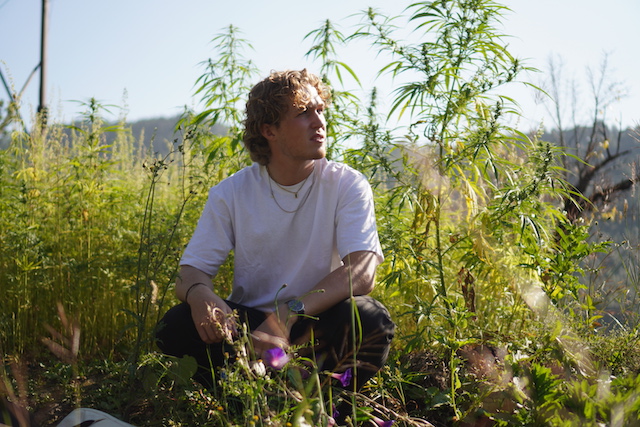
Green Revolution: Hemp farming for a sustainable future
Jan 9, 2024
•
In the mid-20th century, the world underwent a significant agricultural transformation known as the Green Revolution. This movement focused on the development of high-yielding crop varieties and the introduction of intensive farming techniques to address food shortages. While the Green Revolution was successful in boosting crop production, it also raised concerns about environmental sustainability and the reliance on chemical inputs.
As the world faces the challenges of climate change and resource depletion, the need for more sustainable agricultural practices has never been more pressing. Hemp, a versatile and environmentally friendly crop, has emerged as a potential solution for the next Green Revolution.
Hemp: A Sustainable Answer
Hemp, a member of the Cannabis sativa family, is a remarkable plant with a wide range of applications. It can be used to produce fibers for textiles, paper, and composites; seeds for food and oil; and cannabinoids for medicinal and industrial purposes.
Hemp's sustainability advantages stem from its ability to thrive in a variety of climates and soil conditions, requiring minimal inputs of water, fertilizers, and pesticides. Unlike many other crops, hemp naturally fixes nitrogen from the air, reducing the need for synthetic nitrogen fertilizers that contribute to water pollution and greenhouse gas emissions.
Sustainable Hemp Farming Practices
Adopting sustainable hemp farming practices is crucial to maximizing both production and environmental benefits. Here are some key principles to consider:
- Organic Cultivation: Embracing organic farming methods eliminates the use of synthetic pesticides and fertilizers, protecting soil health and biodiversity.
- Cover Cropping: Intercropping hemp with cover crops, such as clover or ryegrass, helps suppress weeds, improve soil fertility, and enhance water retention.
- Integrated Pest Management: Employing integrated pest management strategies, such as crop rotation and natural predators, minimizes reliance on chemical pesticides.
- Precision Agriculture: Utilizing precision agriculture techniques, such as variable-rate application of inputs, optimizes resource usage and reduces environmental impact.
- Local Processing and Distribution: Supporting local processing and distribution networks minimizes transportation emissions associated with transporting hemp products.
Hemp's Role in a Sustainable Future
Hemp's versatility and sustainability potential make it a promising candidate for the next Green Revolution. As the world transitions towards a more environmentally conscious agricultural landscape, hemp has the potential to play a significant role in providing sustainable food, fiber, and industrial products.
By adopting sustainable hemp farming practices and expanding its applications, we can harness the power of this remarkable plant to build a more sustainable and resilient future.
Explore Our Latest Insights
Discover the Power of Hemp
Join us in exploring the sustainable benefits of hemp for a greener future.

Built to Last
Hemp has been prized for millennia for its exceptional strength, durability, and resistance to the elements.
Eco-Smart Choice
A greener future doesn’t happen by accident. It’s a choice. From seed to fabric to flag, our supply chain respects the Earth.
Premium Craftsmanship
We cut, stitch, hem, digitally print, and quality-check in Europe, uniting skilled hands with modern, low-impact tech.
Trusted Worldwide
Chosen by global conscious brands for flags that supersede today's standards and meet tomorrow's responsibilities.












%20Daniel%20Kogler%20(11).webp)


%201.png)